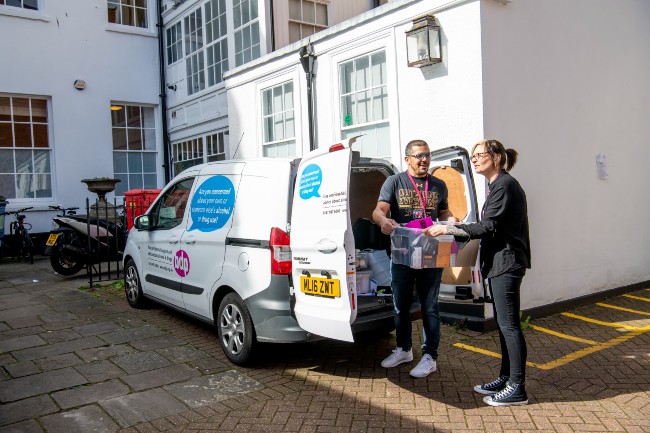An opportunity to rethink opiate addiction treatment policy and practice?

As a result of the COVID-19 pandemic people who inject drugs (PWID) faced widespread and sudden changes. Daily supervised consumption of opioid substitution treatment (OST), such as methadone, and frequent dispensing from pharmacies of medicines used to treat opiate addiction was standard practice before the COVID-19 pandemic.
About the research
The United Kingdom government advised services to transfer most patients from daily supervised consumption to take home doses and to lengthen prescriptions, as well as to maximise interventions to mitigate risk. Additionally, increased emergency housing provision for those who were homeless was provided by local councils. The pandemic restrictions were anticipated to cause disruptions to the illegal drug supply.
This interview study was established at the start of the COVID-19 restrictions in the UK to explore experiences of challenges relating to the pandemic public health measures, changes to drug treatment medication and harm reduction services and how the pandemic affected drug use. The results provide evidence of how the changes brought about by the pandemic were received by people who inject drugs, and have policy implications for the provision of drug treatment beyond the pandemic.
Policy recommendations
• Less frequent and unsupervised OST was widely well-received. Policy makers should carry out further evidence gathering around the impact of this approach.
• PWID need to be supported with joined-up strategic cooperation amongst local service providers, addressing reduced income, housing access, difficulty managing mental health and support for drug use. This is in line with recent recommendations for drug policy in the UK from the 2021 Independent Review of Drugs.
• Harm reduction services were more important than ever during the pandemic. Adopting innovative approaches to reaching PWID, and maintaining or even increasing coverage of services, is important for reducing the harms of injecting drug use during pandemic restrictions and beyond.
• If changes to remote service delivery through telecommunications are maintained, it will be important to ensure PWID are not digitally excluded due to lack of smartphone access.
There’s actually been bonuses to it [COVID-19]. Like I mean having more attention from services and stuff. That’s how it’s felt, like they’ve cared more about our welfare to a degree. So, I mean I was left sleeping under a bridge for nine months and the moment the coronavirus happened it was like ‘come on, come and get in a room’.
Key findings
Service access - People who inject drugs appreciated the efforts made by services to continue providing support during the pandemic. While not all the changes were seen as ideal, others were considered improvements to the previous service provision.
For example, reducing how often service users collected OST medication from pharmacies and relaxing rules on taking medication under supervision reduced stigma and embarrassment, and gave individuals greater freedom.
Rapid prescribing of OST was proactively offered by services, which helped overcome the reduced access to drugs and supported people who inject drugs in Bristol to self-isolate if necessary.
People liked the home delivery of sterile injecting equipment, made widely available by Bristol Drugs Project during the pandemic. It was discreet, convenient and overcame difficulties with accessing equipment through community pharmacies, many of which had shorter opening hours and long queues due to social distancing.
Some pharmacies also ran out of injecting equipment and some stopped providing it. These issues led to some people reusing or sharing equipment.
Regular appointments related to OST took place over the phone, and treatment groups took place through video conferencing. People felt that phone contact with services was less beneficial and more difficult to engage with than face-to-face support.
Loss of connection, routine and income - Public health guidance advising people to ‘stay at home’ led to increased isolation, boredom and time to reflect, which had a negative impact on mental health. Public health restrictions limited communication with peers. Many people who were street homeless or vulnerably housed did not have phones or the internet to access services.
The pandemic disrupted daily routines and sources of income. It was difficult to make money for several reasons, including job losses and fewer people on the streets made mendicancy difficult. Difficulties earning money reportedly contributed to an increase in crimes such as theft.
Drug use and injection-related harms - While some people described no change to their drug use, others talked about considerable increases or reductions in the amount and frequency they used. Experiences of isolation, problems accessing drugs, reduced purity and reduced income all appeared to influence drug use. Difficulties buying drugs during the pandemic meant some people changed to more readily available and cheaper drugs like spice.
Attitudes to COVID-19 - Our interviews found that concern about COVID-19 and the extent to which people followed public health guidance varied.
People who were not concerned about COVID-19 talked about not knowing anyone who had it and about having more pressing issues to deal with, including their drug dependence. Others were concerned because they felt at risk from COVID-19 due to other medical issues, and talked about finding it difficult to socially distance from peers and drug dealers.
Awareness of public health guidance was good and participants were trying to follow the advice. It was more difficult to do this in some living conditions, such as hostels, and when buying drugs.
They say the opposite of addiction is connection but how are you supposed to connect with people when you’re not legally allowed to do that.
Further information
Kesten et al. (2021). Living Under Coronavirus and Injecting Drugs in Bristol (LUCID-B): A qualitative study of experiences of COVID-19 among people who inject drugs. International Journal of Drug Policy.
Authors
Lindsey A. Hines and Joanna M. Kesten (University of Bristol)
Policy Briefing 108: Nov 2021
An opportunity to rethink opiate addiction treatment policy and practice? (PDF, 338kB)